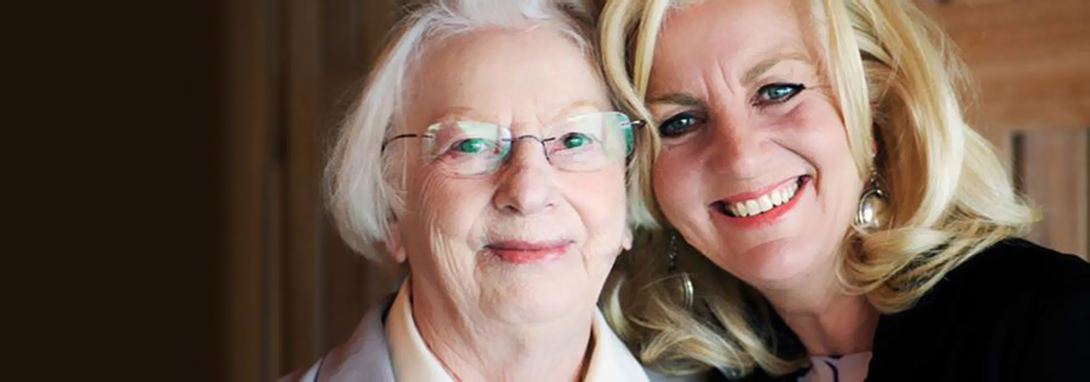Much-loved performer Jean Kittson is part of the sandwich generation – juggling family and work commitments and the welfare of ageing parents in their 90s.
It’s no wonder that research released by the Macular Degeneration Foundation Australia for Macular Degeneration Awareness Week 21-27 May 2017 resonated with the actress and writer.
The study found 75% of Australians aged 50-64 years are providing weekly care and support to older parents in some way and almost half (46%) are supporting grandchildren. Yet according to the research, this group is not making their sight a priority. Only 6% say that an eye disease check is their top health check priority.
“Many people my age find themselves in this ‘sandwich’ situation and are often doing more caring for family members than they expected and consequently are putting their own health and wellbeing needs further down the to-do list,” said Jean.
Jean, who is the Foundation’s ambassador, is aware of the family risk as her mother lives with macular degeneration. “I make sure I get an eye test and macula check every year and I try to eat as many salads, vegies and fish as possible – they are all recommended for good eye health,” she said.
Macular Degeneration is an age-related disease with one in seven Australians over 50 having some evidence of it. People with a family history of Macular Degeneration have a 50% chance of developing the disease.
Eye checks are a priority
With a direct family history of macular degeneration, Jean has a 50% chance of developing the disease, and this is a fact that weighs on her mind.
“It bothers me that I might develop macular degeneration because I have seen what has happened to my mother. If you lose your sight, you also lose so much of your independence. You can be mentally and physically in good health but then you lose your sight, and you have to rely on others simply to drive down the street for milk, or to pay your bills.
“You also miss sharing many meaningful experiences; reading books and seeing movies, the photos from family and friends, a beautiful sunset, a sparkling sea, the grandchildren all dressed up for their first formal. You not only need enormous courage, but you have to try to find a whole new way of connecting – because so much of our personal connection comes through sharing visual experiences, including emails, Facebook and Skyping. My main concern is the thought of it happening to my daughters, my niece and my nephews.”
It’s the thought of the enormous strain that vision loss imposes that drives Jean to maintain a close check on her eye health. “Quite frankly, I don’t manage my general health down to the last detail, but once a year I’ll make sure I catch up on my check-ups, and now that I’m in my 60s, there’s a lot to check: my hearing, my skin, my eyesight... the list keeps growing.
“However, with my family history in mind, I do make sure that I get an eye test and macula check every year, and I try to eat as many salads and vegies and fish as possible. I’ll push my health as far as I responsibly can – but I try not to put my sight at any additional risk.”
Things YOU can do for Macular Degeneration Week:
- Book an eye test and macula check with an optometrist in your local area.
- Order your macular degeneration information kit and Amsler grid online or by phoning the Helpline on 1800 111 709.
- Call the Foundation’s Helpline for information, understanding, guidance and support on 1800 111 709.
- Donate to the Macular Degeneration Foundation Australia today and help save sight!
- Attend this forum in Melbourne on Thursday 25 May https://www.cera.org.au/events/2017-amd-info-forum/






